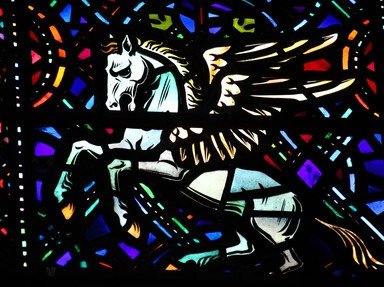Quiz Answer Key and Fun Facts
1. Which of these descriptions is not covered by 'mythology' but by 'legend'?
2. The durability of myths is linked to the development of writing, which has ensured the survival of the stories over centuries. Which of these peoples have been credited with being the first to use writing?
3. According to mythic theory, one of the first steps in the formation of any myth by early civilisations has been attributed to 'animism', which is best described as which of the following?
4. According to mythic theory, which of the following would follow animism?
5. Once in place, a myth never changed.
6. From different cultural mythologies and sources we often see common themes or even very similar stories. Unfortunately, it is not always possible to tell whether one story was merely the adaptation of another, or whether both were similar by coincidence. The tale of Ut-napishtim from "The Epic of Gilgamesh" closely resembles which of these stories from the Bible?
7. An aspect of Egypt's religious belief was that immortality was obtainable but that your life had to be judged worthy enough for a continued existence in the 'afterlife'. In other words, religion was strongly connected to moral behaviour. In order to be judged worthy, the 'Book of the Dead' states that what should be measured what against what?
8. Roman mythology shares many similarities with that of the Greeks due mainly to the influence of the expanding Roman empire absorbing local stories and using them for their own. Which of these Roman gods is considered original, with no Greek influence?
9. Viking raids south towards Ireland and other countries influenced not only British-based mythologies but its language. How many days of the week (in English) are named after Norse deities?
10. Chinese mythology is complicated by its long history, the geographical size of the country, and cross-mixing with internal religions and philosophies, and external factors such as Hinduism and Buddhism. One famous myth concerns a Buddhist monk travelling to India to collect religious texts: the story is told in which famous piece of Chinese literature?
Source: Author
chunpq
This quiz was reviewed by FunTrivia editor
agony before going online.
Any errors found in FunTrivia content are routinely corrected through our feedback system.

